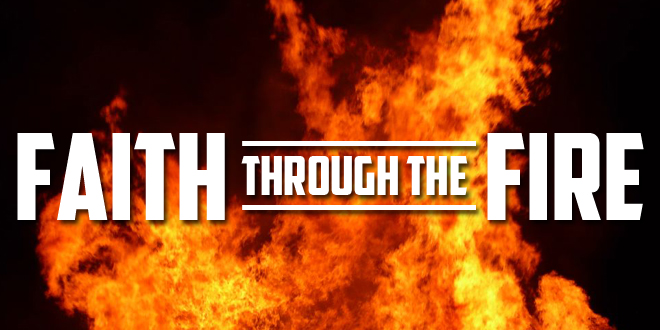He was the most powerful man in the world – and he had a hot temper. Nebuchadnezzar didn’t respond well when someone failed to do whatever he commanded them to do. In Daniel 2, the king threatened to kill the Chaldeans by cutting them in pieces and making their houses an ash heap (Dan. 2:5); all of this if they could not tell him what he dreamed the previous night. Nebuchadnezzar wasn’t playing around.
When he decided to erect a golden image and commanded that everyone in his kingdom worship it, he threatened them with their lives.
[box type=”shadow” align=”aligncenter” ]To you it is commanded, O peoples, nations, and languages, that at the time you hear the sound of the horn, flute, harp, lyre, and psaltery, in symphony with all kinds of music, you shall fall down and worship the gold image that King Nebuchadnezzar has set up; and whoever does not fall down and worship shall be cast immediately into the midst of a burning fiery furnace (Dan. 3:4-6).[/box]
You know what happened: Shadrach, Meshach, and Abed-Nego didn’t bow. They were brought before Nebuchadnezzar and given a second chance to worship the image, but refused to do so to the king’s face! “Then Nebuchadnezzar was full of fury” (Dan. 3:19). He commanded his men to heat the furnace seven times hotter than it was usually heated, then he commanded that Shadrach, Meshach, and Abed-Nego be thrown in.
This is not a story for the faint of heart. Notice three types of hearts that are represented here.
First, notice the heart of the king (3:1-3). Many scholars believe that Nebuchadnezzar’s dream (back in chapter two) got him thinking about his kingdom. God enabled Daniel to see into the future and to tell Nebuchadnezzar that the mighty Babylonian Empire wouldn’t stand forever. Perhaps the image he had made in chapter three is an image of himself. Maybe he called all of his kingdom’s dignitaries to Dura to test their loyalty to the Empire and to him as the king. It seems that his heart is filled with pride coupled with fear. His faith is an egotistical faith in himself.
Second, look at the heart of the people (3:4-7). No one is faithless. Everyone believes in something, though they may not possess the right beliefs (cf. John 8:24, 32; 17:17). The key is the object of one’s faith. Where were the masses when the instruments played? They were on the ground, of course! They feared for their lives. They knew the consequences of not bowing before the image, so they bowed: “all the people, nations, and languages fell down and worshiped the gold image which King Nebuchadnezzar had set up” (Dan. 3:7). When we put our faith in men, we are sure to be disappointed (Job 14:1). When we base our religious actions on any degree of peer pressure (including governmental pressure), we will find our faith to be fickle and our lives to be pointless.
Finally, look at the hearts of the three Jewish men (3:8-12). They knew God’s commandments.
[box type=”shadow” align=”aligncenter” ]I am the LORD your God, who brought you out of the land of Egypt, out of the house of bondage. You shall have no other gods before Me. You shall not make for yourself a carved image—any likeness of anything that is in heaven above, or that is in the earth beneath, or that is in the water under the earth; you shall not bow down to them nor serve them. (Exo. 20:2-5).[/box]
They were not willing to compromise their beliefs – even with the threat of death. They boldly confronted the challenge and confessed the Lord. They knew that He could deliver them through whatever means were in accordance with His will for them (Dan. 3:13-18). They trusted God and they obeyed Him.
If your faith that strong? Now there’s a difficult proposition. Yet, why can’t our faith be as strong as theirs was? The fact that the age of miracles has ceased doesn’t mean that our faith should be any less strong than the people in the hall of faith (Heb. 11; cf. John 20:30-31).
It seems that Shadrach, Meshach, and Abed-Nego had accessed a two-fold key to strong faith: true trust in God and in His Word, and relentless obedience to His commands.
[box type=”shadow” align=”aligncenter” ]Your word I have hidden in my heart, That I might not sin against You (Psa. 119:11).[/box]


